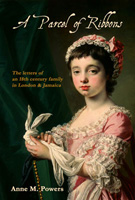There are two ways to access the Wills transcribed on this website. You can click on the Collections link and click through to the Will you want to view, or you can select from the alphabetical list here where you will find links to .pdf copies of the transcriptions.
Most of the Wills transcribed here were proved at the Prerogative Court of Canterbury and have been obtained via the UK National Archives website. You can obtain copies for download for a small charge. Recently these Wills have also become available as part of a subscription to Ancestry. I have given the relevant probate reference to assist in locating the catalogue entry, in other cases I give details of the source. Sometimes the material is an abstract obtained from a secondary source. The date given against the Will is the probate year rather than the date of writing of the Will.
As far as possible I have retained the original spelling and punctuation. Usually this means a lack of punctuation as English legal documents often eschew it for clarity! Spelling, particularly of personal and place names, was not standardised in the eighteenth century and capitalisation of many words in a sentence was common. Sometimes I have split the text in order to help with readability. Occasionally I have not been able to decipher the text and have marked it in square brackets as [illegible]. As always if it is important to you please check the original source.
For interest I have usually added some background notes about the person whose Will it is, their family and their connections with Jamaica.
It is probably worth mentioning that family relationships referred to in Wills must be regarded with caution – a reference to ‘my sister’ might mean my biological sister, my half-sister, my step sister, my brother’s wife or my wife’s sister. A nephew or niece might be a great-nephew or great-niece; a ‘kinsman’ might be a cousin or a more distant relation. When someone has married more than once, persons referred to might be relatives of a deceased spouse rather than a current one. Frustrating as such relationships might be, those Wills that leave legacies such as mourning rings to numerous friends and cousins are by far more useful than one in which a man simply leaves his estate to his wife without mentioning any children or other relations – absence of mention does not provide evidence of absence although it may be indicative!
It was common to leave a legacy to a minor conditionally, to be paid on the child reaching a particular age, often twenty-one but particularly in the case of girls at a younger age or on marriage regardless of the age condition. Do not be surprised if a Will appears to leave the entire estate to the completely unrelated ‘Joe Bloggs and Jack Robinson’ – reading through the Will usually reveals that they are the executors and the estate is being left to them in Trust for the real legatees who are either adult women or children. It was possible for women to own property in their own right and it is not uncommon to find a legacy to a woman left to her sole use separate from any current or future husband – affording some protection against fortune hunters and abusive spouses!
Anne M Powers
updated August 2015

